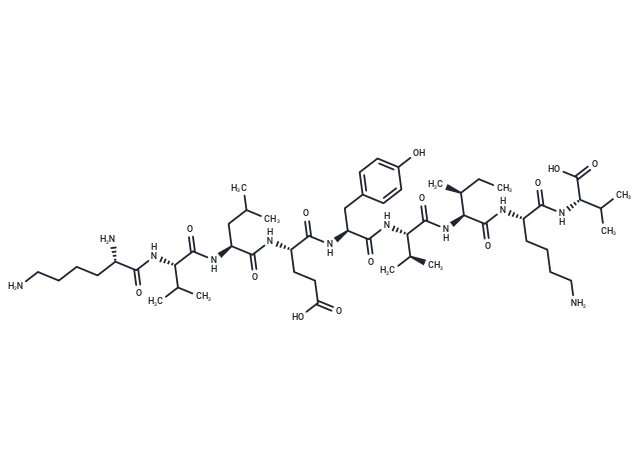Shopping Cart
- Remove All
 Your shopping cart is currently empty
Your shopping cart is currently empty

MAGE-A1-derived peptide is a short peptide sequence originating from the MAGE-A1 protein. Serving as a tumor-specific antigen, it can be recognized and activated by cytotoxic T lymphocytes (CTLs) to elicit an immune response against tumor cells expressing MAGE-A1. This immune response can result in the lysis and death of tumor cells. The peptide is utilized in research on tumor immunity.

| Pack Size | Price | Availability | Quantity |
|---|---|---|---|
| 10 mg | Inquiry | Backorder | |
| 50 mg | Inquiry | Backorder |
| Description | MAGE-A1-derived peptide is a short peptide sequence originating from the MAGE-A1 protein. Serving as a tumor-specific antigen, it can be recognized and activated by cytotoxic T lymphocytes (CTLs) to elicit an immune response against tumor cells expressing MAGE-A1. This immune response can result in the lysis and death of tumor cells. The peptide is utilized in research on tumor immunity. |
| Molecular Weight | 1090.36 |
| Formula | C53H91N11O13 |
| Cas No. | 160213-30-9 |
| Storage | Powder: -20°C for 3 years | In solvent: -80°C for 1 year | Shipping with blue ice. |

Copyright © 2015-2025 TargetMol Chemicals Inc. All Rights Reserved.